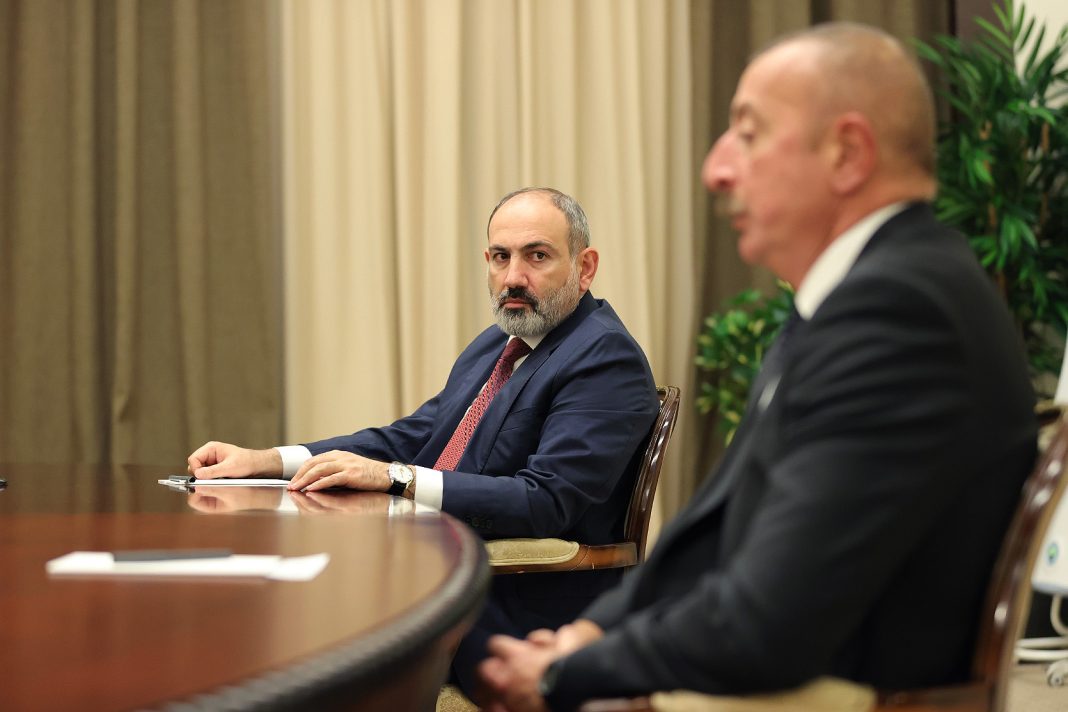According to a readout of Pashinyan’s phone call with French President Emmanuel Macron on Saturday, the prime minister lamented the “deepening humanitarian crisis in Nagorno-Karabakh.”
During the conversation, however, Pashinyan “expressed readiness to hold urgent discussions with the president of Azerbaijan [Ilham Aliyev] aimed at reducing tensions,” while pledging to resolve the disagreements diplomatically.
At the same time, Pashinyan also claimed that the current humanitarian crisis was caused by “the illegal blocking of the Lachin Corridor [and] the accumulation of Azerbaijani troops around Nagorno-Karabakh.”
Baku has repeatedly denied accusations that it is blocking this crucial road, which serves as the only link between the contested region and Armenia.
Pashinyan’s pledge comes after the two countries traded barbs on Thursday over the tensions in the region, which resulted in clashes last week that left several Armenian service members dead.
Also on Saturday, ethnic Armenian authorities in Nagorno-Karabakh agreed to let in aid shipments from Baku-held territory for the first time in decades, in return for the restoration of road links to Armenia.
The moves – initially reported by Armenia’s Armenpress state news agency and confirmed by Baku – appear at least partly to grant Azerbaijan’s decades-old demand to restore transport links between Azeri government-held territory and the province, which broke free of Baku’s rule in the 1990s.
Armenpress cited Karabakh authorities as saying that they had “decided to allow access of the Russian goods to our republic through the town of Askeran,” referring to a Karabakh town close to the frontline with Azerbaijan.
“At the same time, an agreement has been reached to restore humanitarian shipments by the Russian peacekeepers and the International Committee of the Red Cross along the Lachin Corridor,” the Armenpress report added, referring to the area through which the road linking Karabakh to Armenia passes.
It reported the move was driven by “severe humanitarian problems” in the blockaded region.
Hikmet Hajiyev, a foreign policy advisor to Azerbaijani President Ilham Aliyev, confirmed to Reuters that both routes would be opened simultaneously, while an Azerbaijani checkpoint on the road to Armenia would stay in place. He restated Baku’s longtime position that the Karabakh separatist authorities must dissolve and disarm.
The two Caucasian nations have been embroiled in a conflict over Nagorno-Karabakh since the late 1980s, when the predominantly ethnic Armenian region moved to break away from Azerbaijan and join Armenia. With the Soviet Union on the verge of collapse, tensions erupted into a major war in the early 1990s that claimed thousands of lives. The fighting ended with the signing of a ceasefire in 1994, although fighting has broken out sporadically since.
One of the bloodiest clashes – which is often referred to as the Second Nagorno-Karabakh War – took place in 2020 and resulted in Azerbaijan taking control of a significant amount of territory. The hostilities ended in a Russia-mediated ceasefire.
Earlier this year, however, both sides signaled a readiness to end the long-running territorial dispute. In May, Pashinyan and Aliyev confirmed that they were prepared to normalize relations on the basis of “mutual recognition of territorial integrity.”
